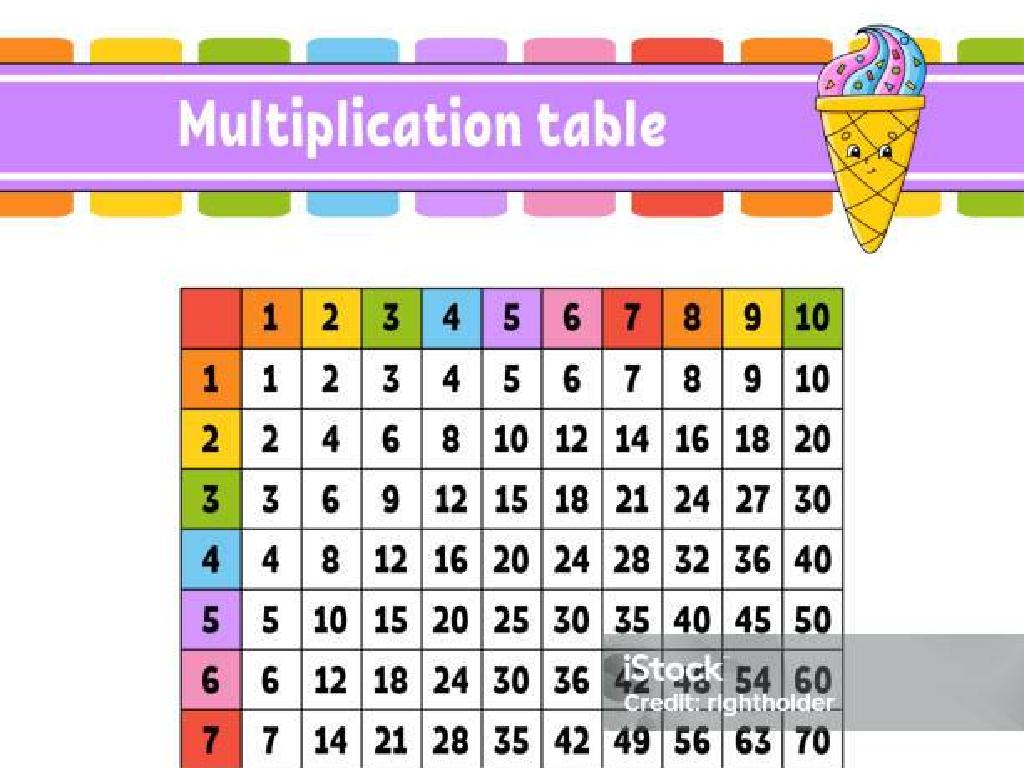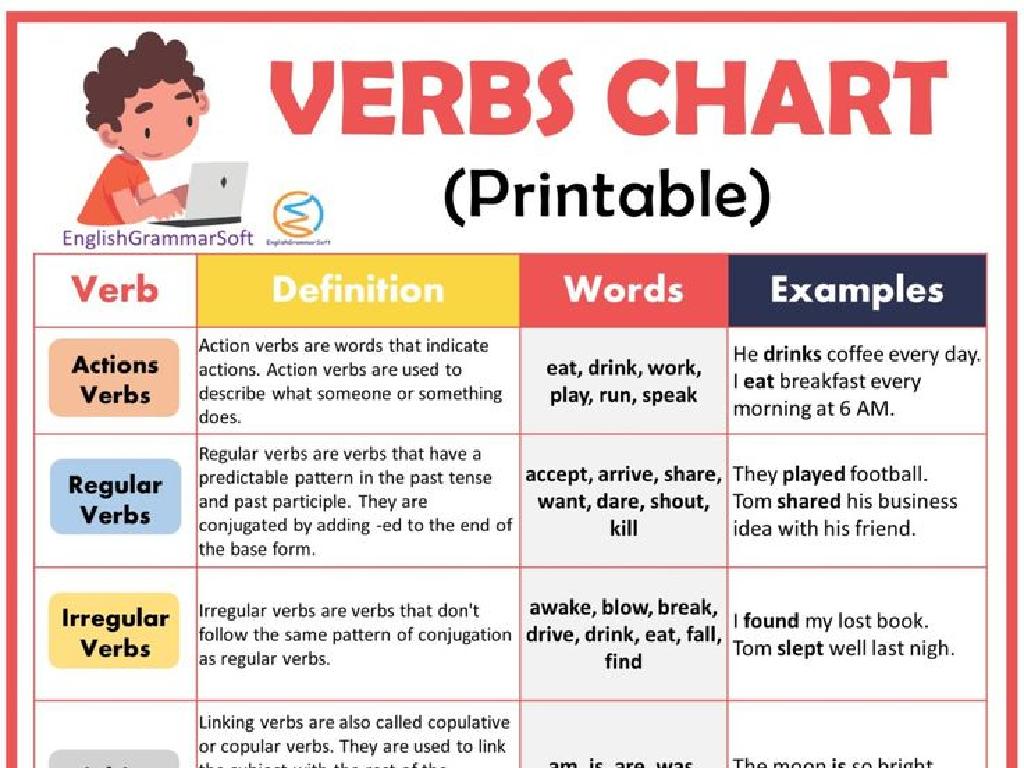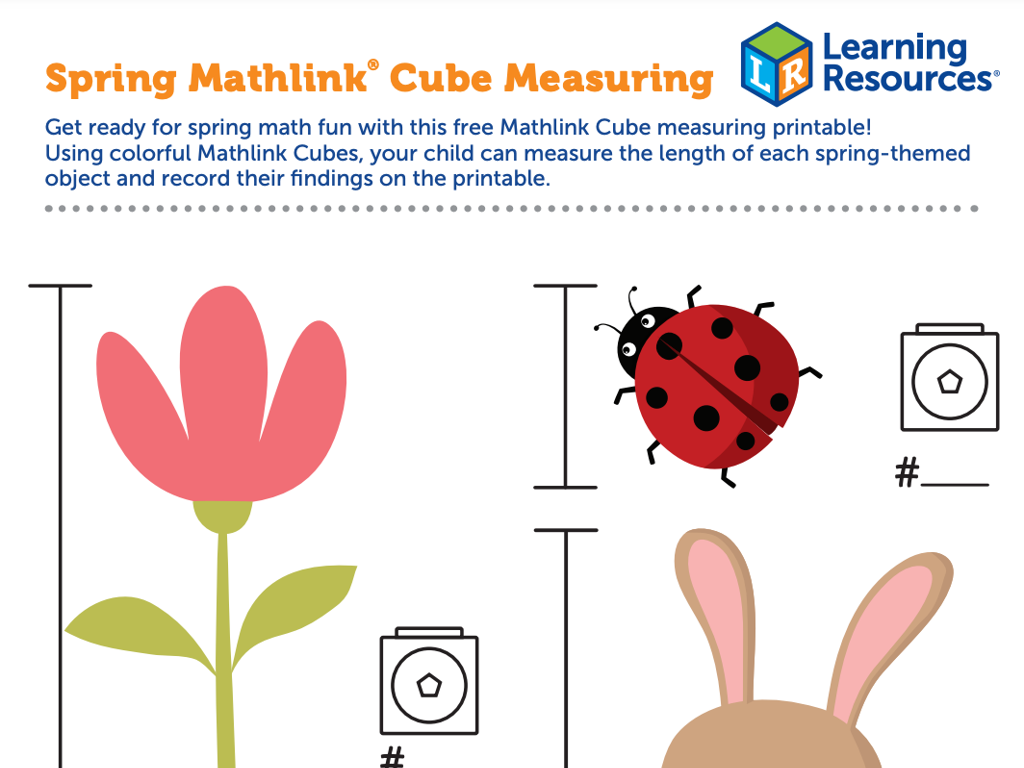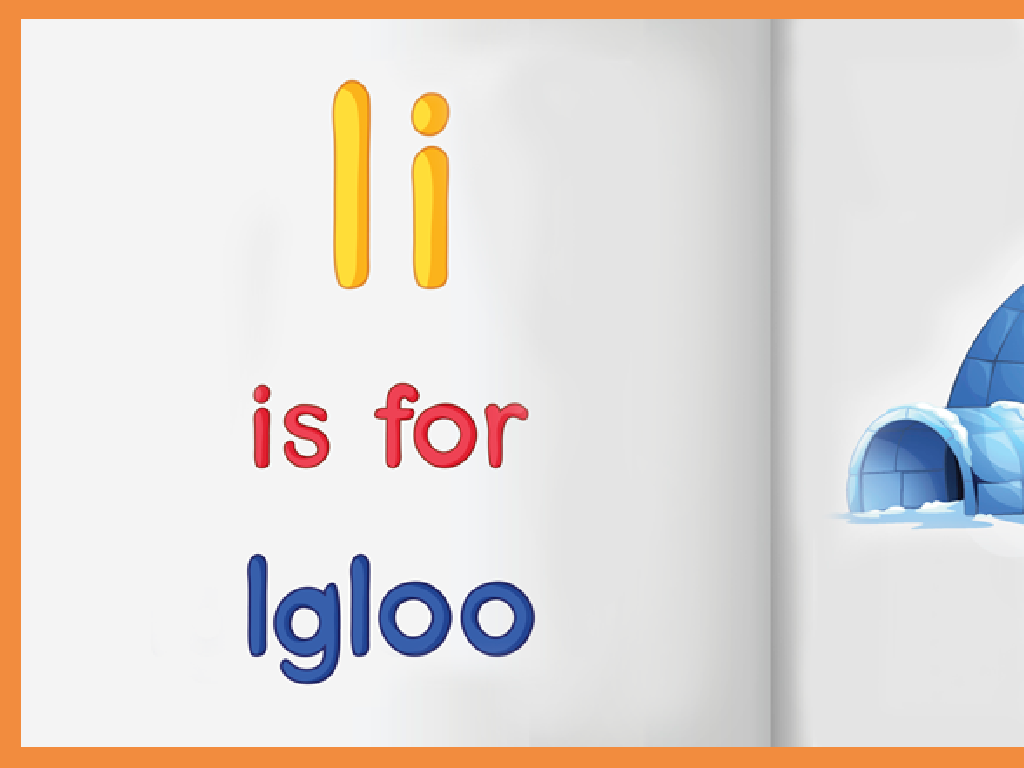Reference Skills
Subject: Language arts
Grade: Second grade
Topic: Context Clues
Please LOG IN to download the presentation. Access is available to registered users only.
View More Content
Welcome to Context Clues!
– Become a word detective today
– We’ll learn to spot hints that help us understand new words
– Finding clues in sentences
– Look for words or phrases around the unknown word that give hints
– Understanding context clues
– Context clues are hints authors give to help us figure out the meaning of words
– Practice makes perfect
– We’ll do fun activities to become expert word detectives
|
In this lesson, students will be introduced to the concept of context clues as a strategy to understand the meaning of unfamiliar words they encounter while reading. Emphasize that they can be like detectives looking for clues in the text to solve the mystery of the word’s meaning. Provide examples of different types of context clues such as synonyms, antonyms, explanations, and examples within a sentence or paragraph. Encourage students to practice this skill with various texts and remind them that the more they practice, the better they will become at using context clues to enhance their reading comprehension and vocabulary.
Understanding Context Clues
– Context clues help define words
– Clues in sentences that explain new words
– Be word detectives
– Use clues to ‘solve’ word meanings
– Types of context clues
– Synonyms, antonyms, explanations, examples
– Practice with examples
– Find clues in sentences to understand words
|
This slide introduces the concept of context clues to second-grade students. Context clues are hints found within a sentence or passage that can help readers figure out the meaning of an unfamiliar word. Encourage students to think like detectives, searching for and using these clues to ‘solve’ the meanings of new words they encounter in their reading. Explain the different types of context clues: synonyms (words that mean the same), antonyms (words that mean the opposite), explanations (definitions or descriptions within the text), and examples (instances that illustrate the word). Provide practice sentences for students to apply their new skills, and encourage them to share the clues they find and how they helped determine the word’s meaning.
Types of Context Clues
– Synonym Clues: Same meaning
– Like ‘happy’ and ‘joyful’.
– Antonym Clues: Opposite meaning
– Like ‘hot’ is the opposite of ‘cold’.
– Explanation Clues: Word defined
– The sentence explains what the word means.
– Example Clues: Word explained with examples
– The word is shown being used in different ways.
|
This slide introduces the concept of context clues to second-grade students, focusing on the four main types: synonyms, antonyms, explanations, and examples. Synonym clues are words in the text that have the same meaning as the unknown word. Antonym clues are words that mean the opposite, helping to define the unknown word by contrast. Explanation clues occur when the text directly defines the term. Example clues provide instances that illustrate the meaning of the word. Encourage students to look for these clues in sentences to help them understand new vocabulary. Use simple and familiar words to demonstrate each type of clue, and prepare interactive activities where students can practice identifying these clues in sentences.
Finding Synonyms in Sentences
– Look for linking words
– Words like ‘or’, ‘is’, ‘means’ may hint at a synonym
– ‘Arid’ means dry
– In ‘The arid desert was very dry’, ‘arid’ is a synonym for ‘dry’
– Synonyms make reading fun
– Practice with your favorite book
– Find synonyms in sentences as you read
|
This slide is aimed at teaching second graders how to use context clues to find synonyms within sentences. Emphasize the importance of linking words such as ‘or’, ‘is’, and ‘means’, which often signal that a synonym is being provided for a word they may not know. Use the example provided to illustrate how synonyms can help clarify the meaning of unfamiliar words. Encourage students to practice this skill by looking for synonyms in books they enjoy reading. This will help them expand their vocabulary and improve their comprehension skills.
Finding Antonyms in Sentences
– Look for contrast words
– Words like ‘but’ signal contrast
– ‘But’, ‘however’, ‘although’
– These words often introduce antonyms
– Find opposite meaning words
– Antonyms are words with opposite meanings
– Example: Sun and shade
– ‘Scorching’ sun vs. ‘cool’ shade
|
This slide aims to teach students how to use context clues to find antonyms, or words with opposite meanings, in sentences. Highlight the importance of signal words such as ‘but’, ‘however’, and ‘although’, which often indicate that an antonym is coming up. Use the example provided to show how these signal words introduce a contrast in the sentence, helping to identify the antonym. Encourage students to practice by finding sentences in their favorite books and identifying antonyms using these context clues. This will enhance their vocabulary and comprehension skills.
Understanding Explanation Clues
– Sentences can explain meanings
– Look for words like ‘or’ which introduce the explanation
– Example: ‘He procrastinated, or delayed doing his homework.’
– ‘Procrastinated’ means the same as ‘delayed’.
– Practice finding explanation clues
– Try to find clues in books you read!
|
This slide introduces the concept of explanation clues, which are context clues that help students understand the meaning of unfamiliar words. It’s important to highlight that sometimes a sentence will directly explain the meaning of a word right after it, often following words like ‘or’, ‘that is’, or ‘in other words’. Use the example provided to show how the word ‘procrastinated’ is immediately explained by the phrase following ‘or’. Encourage students to look for these clues when they read. As an activity, students can practice this skill by finding sentences in their favorite books that contain explanation clues and sharing them in class.
Using Example Clues in Sentences
– Look for ‘such as’ in sentences
– It introduces examples: ‘Fruits, such as apples and bananas, are healthy.’
– Find ‘for example’ to see clues
– It gives more information: ‘I love playing sports, for example, soccer and basketball.’
– Use ‘like’ to discover examples
– It compares things: ‘I enjoy eating sweets, like candy and chocolate.’
– Practice with a sentence
|
This slide aims to teach students how to use example clues to understand the meaning of sentences. By identifying phrases such as ‘such as’, ‘for example’, and ‘like’, students can find examples that clarify the text. Use the provided sentence to demonstrate how these clues work in context. Encourage students to practice by reading a sentence and identifying the example clues and what they reveal about the subject. This activity will enhance their reading comprehension and reference skills.
Let’s Practice Together: Finding Clues in Sentences
– Read sentences as a class
– Find context clues together
– Look for hints around the word that help us guess the meaning
– Partner up for a word mystery
– Work with a classmate to solve the meaning of the mystery word
– Discuss your word guesses
– Share your ideas on what the word could mean
|
This interactive slide is designed for a classroom activity where students will engage in identifying context clues within given sentences. Start by reading sentences aloud with the class, and then highlight the context clues that can help deduce the meaning of unfamiliar words. Encourage students to pair up and discuss their thoughts on what the mystery words might mean based on the clues provided. This collaborative exercise not only reinforces the concept of context clues but also promotes discussion and critical thinking. As a teacher, facilitate the activity by guiding the students through examples and ensuring each pair has a chance to contribute to the discussion.
Class Activity: Context Clue Hunt
– Join our sentence scavenger hunt
– Find sentences with highlighted words
– Use context clues to define words
– Look for hints in the sentence to understand the word
– Write down meanings for class review
|
This interactive class activity is designed to help students practice using context clues to determine the meaning of unknown words. Scatter sentences with highlighted words around the classroom. Students will move around the room to find these sentences and use the surrounding text as clues to infer the meaning of the highlighted words. Encourage them to consider the overall message of the sentence and look for synonyms, antonyms, explanations, or examples that might give hints about the word’s meaning. After the hunt, gather the students and review their findings as a class, discussing the different strategies they used to decipher the meanings. This will reinforce their reference skills and promote collaborative learning.
Conclusion & Review: Context Clue Detectives
– Celebrating our detective work
– Reviewing types of context clues
– Synonyms, antonyms, explanations, examples
– Understanding words with context clues
– Clues make unknown words understandable
– Practice makes perfect
– Keep using clues in reading to get better
|
As we wrap up today’s lesson, congratulate the students on their hard work in becoming word detectives. Go over the different types of context clues we’ve discussed, such as synonyms, antonyms, explanations, and examples. Reinforce the idea that these clues are like hints to help us figure out the meanings of new or difficult words. Encourage the students to continue practicing using context clues in their reading both at school and at home. The more they practice, the better they’ll become at understanding new vocabulary, which will help them become stronger readers.






